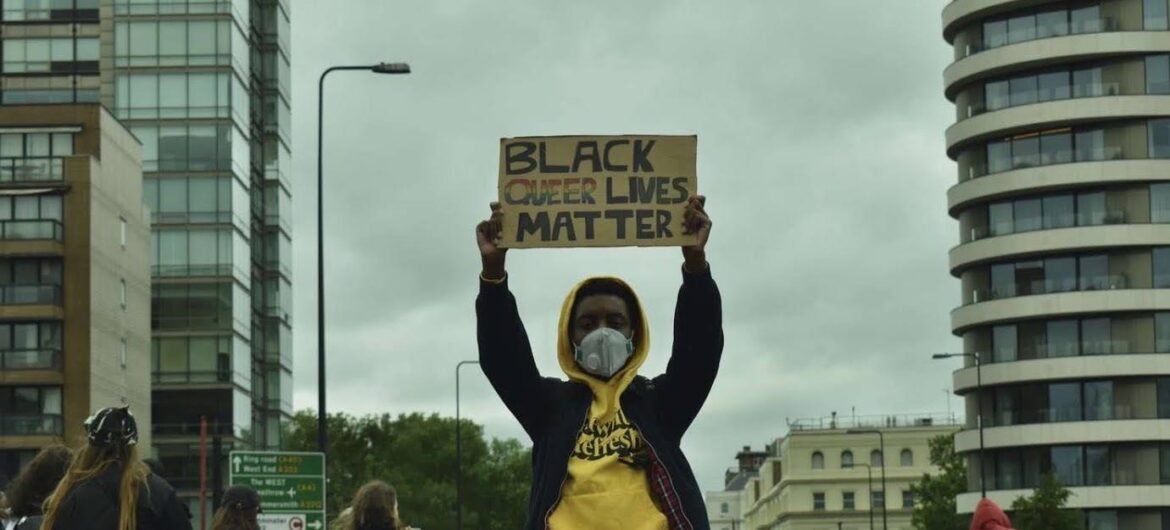keeping the conversation and education surroundings Black History beyond the month of October.
Trigger warning: sexual assault
Words By Lilah May McKim
Black history month is the annual celebration of achievements by Black individuals and a time for recognizing the central role of the important history belonging to the Black community.
Although Black History Month is October, black history should be recognised all year round. In the hope that, one day we will not need a month dedicated to the celebration Black individuals and their role in history, as this will be appreciated universally.
Whilst there has been progress regarding the equal treatment of Black people and their white counterparts, there is still a lot of headway to be made. This progress is in the interest of, as Martin Luther King Jr once said, “one day…[when] the sons of former slaves and the sons of former slave owners will be able to sit down together at the table of brotherhood”.
Following the murder of George Floyd in May 2020, millions of people took to the streets globally, in protest against racially charged police brutality. This world-wide protesting brought immense support for the Black Lives Matter movement and created a strong sense of solidarity for the Black community. This resulted in steps towards justice for Floyd’s, with the officers involved currently facing murder charges in Minnesota.
Further, there has been positive development in the treatment of Indigenous peoples. The Pitts Rivers Museum in Oxford took down it shrunken heads in a of transformation of ‘racist colonial displays’’. This is progressive action towards addressing how the human remains exhibit “reinforced racist of other cultures, portraying them as “savage” or “primitive” stated the museum’s director, Dr Laura Van Broekhoven. This is part of the Museum’s wider project to educate it visitors that many of the museum’s artefacts were unrightfully taken in the age of British colonialism. Museum staff have been contacting the Indigenous communities included in the display in regards to what should be done with the human remains removed from display and many more in its archives.
Moreover, Kew’s director of Science, Professor Alexandre Antonelli is striving for a decolonialisation of Britain’s botanical gardens to a revise the “imperialist view”. This view appropriates the discovery of plants that were already identified by Indigenous peoples. Presenter of ‘Gardener’s World’ Monty Don argued that “we have to acknowledge it” because even the seemingly innocent practice of gardening is “part of this” issue.
Despite these protests, and the acknowledgement of our colonial past, and ongoing racism in in the global community, there is still much advancement to be made. In the interest of progress, it is important to recognize the fundamental achievements of Black people and their role in history.
Maya Angelou was an African-American civil rights activist. Writing seven autobiographies, she tells of the many struggles of growing up as a Black woman in South America. From being raped at the age of eight by her mother’s lover, living on the streets for a month, becoming at single mother at sixteen and overcoming racism, Angelou has faced enormous challenges. Despite her many obstacles, she had an incredible strength of character; this strength is demonstrated in her own words “still I rise”.
The black women Irene Morgan Kirkaldy, Claudette Colvin and Rosa Parks all refused to give up their bus seat for a white person. As a result of Parks’ bus boycott against segregation, judges eventually stated that having separate black and white sections of buses was not allowed.
Nelson Mandela was a South-African anti-apartheid revolutionary and former President of South Africa. Mandela served 27 years in prison after being arrested for conspiring to overthrow the state. After international pressure, to ‘free Nelson Mandela’, he was released in 1990. The end of apartheid can be credited to the combined efforts of Mandela, as well as other South African people, and governments of the world community. Mandela won a Noble Peace Prize in 1993 for his work to peacefully terminate the apartheid regime.
Martin Luther King Jr was an African-American civil rights activist. King’s famous ‘I have a dream’ speech put pressure on the reformers in the United States regarding civil rights and it facilitated passages of the 1964 Civil Rights Act. King won the Nobel Peace Prize in 1964, for combatting racial inequality through non-violent resistance.
Jomo Kenyatta was a Kenyan anti-colonial activist who played a key part in Kenya’s struggle for independence from colonial rule. He was arrested and charged with masterminding an anti-colonial uprising. After Kenya’s independence had been won, Kenyatta became its first president in 1964.
The bravery and strength of these individuals, and their specific achievements are fundamental to world history, particularly in terms of the ongoing struggle for the equality. This could be more universally recognised through changes and incorporations within the school curriculum to include more Black voices, experiences and Black history. Education of Black history, our colonial past and racist present, would enable future generations the knowledge, and subsequently power to generate real change. In the effort that one day, in our global community, people “will not be judged not by the colour of their skin but by the content of their character” (King).


